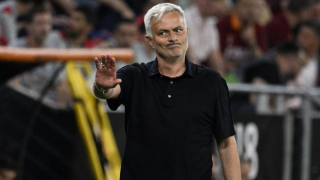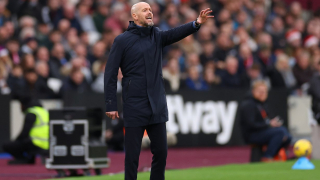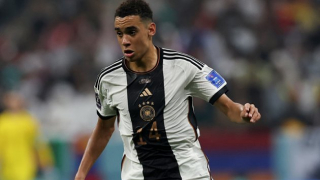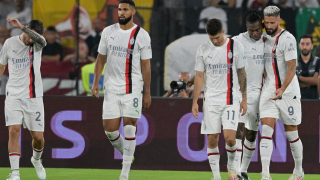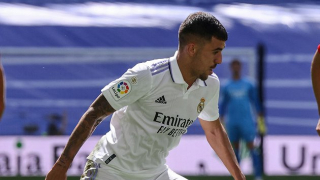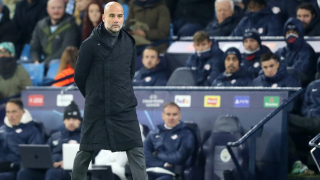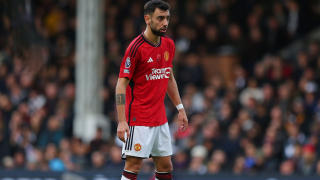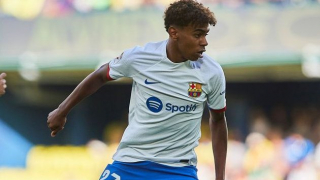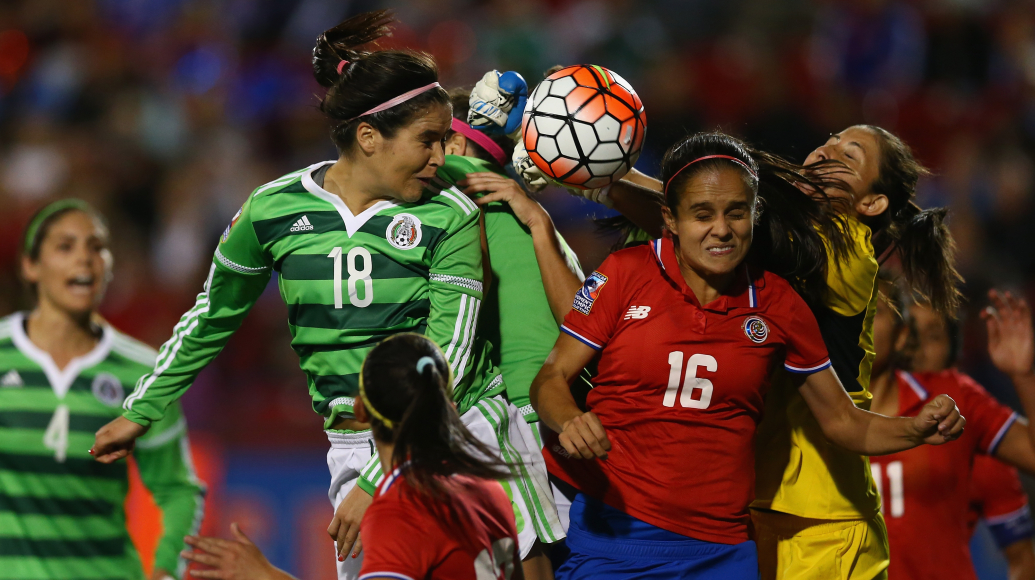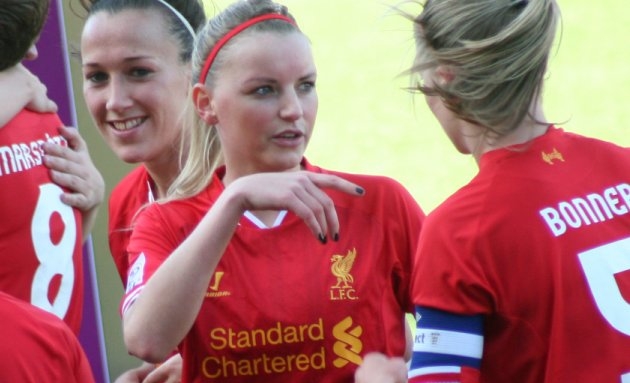This week, we review the outstanding 2022 Women's Africa Cup of Nations Finals from Morocco, which has sent Women's World Cup debutants Morocco—a historic first for North Africa/the Middle East—and Zambia, along with returnees Nigeria and South Africa, to next summer's Finals in Australia/New Zealand. We provide detail on all the matches, as well as an overall analysis of a hugely impactful and impressive tournament, and look at the rosters of the sides.
2022 Women's Africa Cup of Nations Finals Review
Morocco and Zambia qualified for their first ever Women's World Cup Finals, along with Nigeria (their ninth overall) and South Africa (their second) as the four winners at the quarterfinals stage of the 2022 Women's Africa Cup of Nations Finals in Morocco in July. For Morocco, they become the first team from North Africa (and West Asia/Middle East) to qualify for the Women's World Cup, in a region that until very recently struggled with access to the sport for females because of strong, rigid perceptions of proper roles for women and a severe lack of funding and resources.
It will also be interesting to see if Morocco utilize even more diaspora, particularly in France and Spain (they had nine in total on their roster tied with European clubs, with three from France and one from Spain—see below). For Zambia, a major question is, can they resolve the procedural issues ahead of next summer's tournament that prevented Barba Banda from playing in the continental Finals (see more below)? Zambia could also look to add to their team from their diaspora from England and South Africa in particular.
The 2022 TotalEnergies Women's Africa Cup of Nations Finals began on July 2 in Morocco after expanding to 12 teams for the first time—up from eight four years ago. With twelve teams in the Finals—particularly with Women's World Cup Finals spots on the line for next summer—the format allowed for more surprises, as we saw earlier this year in the AFC Women's Asian Cup as Vietnam and surprise outsiders and diaspora-dominate Philippines qualified for the WWC for the first time ever, with the quarterfinal round absolutely crucial to that process, whereas in CONCACAF—the top two teams from each of the two groups in the 8 team finals automatically advanced to the WWC, with the two third-place teams going on to the 10-team intercontinental playoffs after only three matches (see: The Week in Women's Football: CONCACAF reflection; Arsenal keep Miedema; Man City sign Venezuela star Castellanos - Tribal Football). (Note: Oceania's Women's Nations Cup has nine teams in the group stage but cuts down to eight and thus will have a quarterfinal stage, but builds up to only the winner going onto the FIFA Intercontinental Playoffs for the 2023 WWC (note: we will cover the OFC event in the coming weeks). The expansion to 12 teams also allows more debutants in the CAF final round, with four new nations at this event: Botswana, Burkina Faso, Burundi and Togo. Four teams also are making their return after some years absent: Tunisia (last appearing in 2008), Morocco (2000), Uganda (2000) and Senegal (2012). East Africa has two representatives at the finals for the first time—Burundi and Uganda. Botswana was the only debutant to make the quarterfinal round and then the repechage (see more below).
Morocco was the first North African nation to host the finals, which began in 1998 on a biennial basis, with two championships held prior—in 1991 and 1995, with Nigeria taking the crown on both occasions. History was also made with three female coaches at the finals: Gaoletlhoo Nkutlwisang of Botswana, Kai Tomety from Togo and South Africa's Desiree Ellis, who took South Africa to their debut Women's World Cup Finals in 2019 in France. Debutants Burundi brought Gloris Gakiza (La Colombe of Burundi), the youngest player in the tournament at 14 years and 7 months. Nigeria's Onome Ebi (listed with Guingamp of France after playing in Belarus, Turkey, Sweden and at home) is participating in her seventh WAFCON Finals and is the oldest player in this edition at 39 years and two months of age; she is also the team captain.
TITRIT is the official 2022 WAFCON mascot. a lioness, a reference to Morocco's Atlas Lions/Lionesses, an undeniable symbol of power and courage. TITRIT is a Moroccan Berber name which means "star" or "celebrity" and which characterizes a proud, dignified, rigorous and determined person. Graphic courtesy of African Football Confederation.
Below we look at the results at each stage of the tournament and then the rosters for each team.
Group A
In the only game held on the tournament's opening day on July 2, host side Morocco defeated tournament finals debutants Burkina Faso 1-0 as Ghizlane Chebbak scored the only goal within the first hour on a free kick from outside the box that curved around the Burkinabe wall; BF goalkeeper Marian Ouattara (19—Union Sportive des Forces Armees in Ouagadougou) seemed to have blocked it with her hands as she dove but it slipped past her into the goal. Chebbak (31), the Moroccan team captain, has won nine league titles at home with FAR Rabat (Royal Armed Forces or ASFAR). Chebbak also had an effort cleared off the line by a Burkina Faso defender later in the first half and her curling high shot was saved by Ouattara late in the second stanza. Morocco led in ball possession (58% vs. 42%), shots (16 vs. 9) and shots on goal (7 vs. 3) during the match.
The appointment of French coach Reynald Pedros to lead the side showed how seriously Morocco's Football Federation has approached this tournament; he won two French league titles and two European Champions League titles with Olympique Lyon from 2017-2019 and won the FIFA women's coach of the year award in 2018. Pedros (50) took over as Atlas Lionesses coach in November 2020. Prior to the tournament, since November of 2021, the Atlas Lionesses went eight games undefeated in friendlies (with two ties) and defeated European sides Moldova (4-0) and Malta (1-0) in the process.
On July 3, Senegal defeated Uganda 2-0 on a penalty kick goal in the 39th minute by Ndeye Diakhate (25—Le Puy of France) and a goal five minutes into the second half by Nguenar Ndaiaya (27—Bourges of France). Ndaiaya capitalized on a defensive error about 40 meters out from goal by the Crested Cranes and Ndaiaya took the ball in alone on goal and rounded goalkeeper Ruth Aturo (26—Kotkan Tyovaen Palloilijat or KTP of Finland, after leaving Uganda Christian University or UCU Lady Cardinals). Senegal goalkeeper Tenning Sene (32—Sirenes de Grand Yoff in Senegal) had an outstanding game to get the shutout for the Lionesses of Terenga.
On July 5, in the second round of matches. Senegal used a penalty kick goal in the 84th minute by Korka Fall (32—Aigles de la Medina in Senegal) seven minutes after coming on as a substitute to leave Senegal undefeated in group play and assured of a quarterfinal spot after two matches. Burkina Faso played well but were unfortunately shortchanged by the Burundi referee Suavus Iratunga, who had added 3 minutes of injury time for the second half, but only around a minute was actually played as two Senegal players went down injured and needed attention; she ended the game after four and a half minutes had run on the clock.
Also on July 5, host Morocco used an early penalty kick goal in the 14th minute from their English-born import Rosella Ayane (26), who has played for the past three seasons with Tottenham Hotspur in the WSL and spent a year with Apollon Limassol of Cyprus in 2017-18 and was capped by England at the youth level, in their 3-1 win over Uganda. Young Uganda defender Sumaya Koumntale (18—Tooro Queens in Uganda) scored just after the half hour mark on a brilliant free kick from outside of the penalty box that bent into the top corner at a sharp angle over experienced goalkeeper Khadija Er-Rmichi (32) of ASFAR. In the 68th minute, Morocco regained the lead on a headed goal in front of the net from Nesryne El Chad (19), who plays in her native France with St. Etienne, from a brilliant free kick lead ball by Chebbak from over 25 yards out. Chebbak then scored from the penalty spot in the 83rd minute for the final 3-1 score line.
For the last Group A matches on July 8, Ghizlane Chebbak was again the hero with a 55th minute penalty kick goal to give Morocco the only goal they needed in a 1-0 win over Senegal; the win gave Morocco an undefeated record and advancement to the quarterfinals as a top seed. Senegal also moved on to the quarterfinals with 6 points. In the second game, Burkina Faso and Uganda tied 1-1, leaving both teams on 1 point; BF finished in third with a better goal difference than Uganda (-2 vs. -4) but both were eliminated as the other two third place teams had 2 points (Cameroon in Group B) or 3 points (Botswana in Group C) after 2 games.
Group B
In two Group B matches on July 3, Cameroon and Zambia tied 0-0—a strong result for the latter after their Chinese-based forward Barbra Banda was ruled out just prior to the tournament's start for, according to the tournament media, "medical reasons" (see more below). Banda scored successive hat-tricks last summer in Zambia's rousing inaugural Olympic Games Final appearance. In the other Group B match that day, Tunisia defeated Togo 4-1. Tunisia jumped out to a 2-0 lead by the 12th minute on goals by Meriem Houji (27—after one year with FC Vendenheim in France's second division, she played for three seasons at Atasehir Belediyesi Spor Kulubu in Turkey and last season scored 14 goals for ALG Spor in Turkey) and Sabrine Ellouzi (25—Netherlands-born who will play with Feyenoord next season) while Odette Gnintegma (23—Raja Ain Harrouda of Morocco) scored in the 22nd minute from the penalty spot for Togo to halve the deficit. Gnintegma is one of eight Togolese with clubs abroad (see more below). Ellouzi scored 7 goals in 23 matches with Excelsior last season in the Dutch league and was the highest-ranking international player on the league scorers' list behind nine Dutch (according to FIFA) players; she previously played for six seasons with Twente. Ellouzi scored her second goal of the game on the hour mark and Houji scored her second 12 minutes later.
On July 6, Zambia dominated Tunisia throughout the match but had to wait for a 92nd minute winner from Avell Chitundu (24—ZESCO United in Zambia), with an assist from Captain Grace Chanda (25—BIIK of Kazakhstan) to take a 1-0 triumph. Zambia was more dangerous all game but Tunisia's defense held the scoreless deadlock until the very last minutes of the game. The Copper Queens Ochumba Oseke Lubandji (20—Red Arrows in Lusaka) missed a penalty kick in the 32nd minute.
In the second game, Togo vs. Cameroon ended 1-1, a result that left Cameroon on two points and in third place behind Zambia (4 points) and Tunisia (3 points) in a very tight group. Togo earned an historic first point from their first ever goal in the Finals. Togo took the lead with a successful Afi Woedikou (27—Yzeure in France's top league) penalty kick in the 28th minute, but defender Estelle Johnson (NJ/NY Gotham FC) scored 10 minutes later. Togo did a fine job against Cameroon, who have been African Cup of Nations runners-up three times (four second-place finishes including the one when adding in the first two women's continental championships).
For Group B's final day of games on July 9, Zambia jumped to a quick 2-0 lead early with goals by Grace Chandra (25—BIIK in Kazakhstan) in the 15th minute and Ireen Lugu (24—Green Buffaloes in Zambia) in the 21st minute. Togo reduced the deficit in the 35th minute through Afi Woedikou from her second goal of the tournament, but Siomara Mapepa (20—Lusaka Dynamos) scored the Copper Queen's third tally just before the break in the 41st minute. Chanda scored her second goal on the hour mark and Zambia finished with a 4-1 triumph.
In the other match, a crucial game between second place Tunisia and third place Cameroon, the Indomitable Lionesses jumped into the lead even earlier than did Zambia in their win that day, with Michaela Abam (25—the American-born forward with the Houston Dash, who has also played at Real Betis and Paris FC) scoring in the 3rd minute. In the final minute of regulation time, Inter Milan of Italy forward Ajara Nchout (29) scored on a header from a Rose Bella (Trabzonspor of Turkey) pass. Nchout scored 8 goals in 18 matches in her first season in Italy in 2021-22, after stints in Spain, Norway, Sweden, the NWSL, Russia and at home.
Zambia won the group on 7 points, Cameroon finished second on 5 points with Tunisia in third on 3 points—all three sides advanced to the quarterfinals—and Togo finished with 1 point but scored 3 goals (against 9 allowed) in their first ever Finals appearance, which was a good basis to build on for the future.
Group C
On July 4, South Africa shocked the nine-time African Women's Cup of Nations champions (11 titles overall in the African Women's Championships) with a 2-1 win, with all the scoring coming in the final 30 minutes of the game. Forward Jermaine Seoposenwe (28—who has played in the past with Gintra in Lithuania and Real Betis in Spain and is now with Braga of Portugal) scored her 17th international goal in 80 matches in the 61st minute for Banyana Banyana and then Hildah Magaia doubled the score two minutes later. Magaia scored 12 goals in 22 matches for Swedish Second Division side Moron in 2021 and is now with Sejong Sportstoto in Korea Republic. Rasheedat Ajibade (22) scored a consolation goal for the Nigerians in the 92nd minute. She played the last two seasons with Atletico Madrid in Spain, scoring 10 goals in 23 matches last season; in 2019 and 2020 she played with Avaldsnes in Norway (see more below).
Banyana Banyana head coach Desiree Ellis said after the match, "This is a very big win for us as a team. We needed to get this result because it sets the tone for the rest of the tournament. We had a meeting before we started training to talk about our goals and ambitions. We want to qualify for the World Cup and win the title here.…This victory is for everyone back home and for all the coaches. This is for everyone connected to women's football back home."
This was South Africa's second win over Nigeria in the past 10 months, having stunned the defending champions 4-2 in the Aisha Buhari Invitational Cup in Lagos—honoring a political leader in Nigeria and former First Lady of the nation—in which Ghana also participated. Actually, we really shouldn't be so surprised with the result as South Africa defeated Nigeria in their Group opener in late 2018 in Ghana at the Women Cup of Nations Finals 1-0, but fell in the Final to Nigeria on penalty kicks (4-3) after a scoreless match.
On July 6, four-time African Player of the Year Asisat Oshoala (Barcelona of Spain) was ruled out of the Cup of Nations games after suffering a Grade 2 Medial Collateral
Ligament strain in the eighth minute of the opener against South Africa. Oshoala received treatment and returned to the field of play until she was substituted in the 82nd minute by Francesca Ordega.
In the other Group C match on July 4, Botswana won 4-2 over Burundi, with Refilwe Tholakele (26—Township Rovers in Gaborone) scoring a brace and assisting on another goal in the second half for the winners, while Sandrine Niyonkuru (22—Fountaingate Schools in Tanzania) scored a brace for Burundi.
On day two in Group C on July 7, South Africa qualified for the quarterfinals with a 3-1 win over Burundi. South Africa took the lead after 20 minutes through Thembi Kgatlana (26—who early in July signed for Racing Louisville for her second stint in the NWSL after a year with the Houston Dash in 2018—she is transferring from Atletico Madrid in Spain where she had six goals in 25 matches this past season after scoring 10 goals in 27 for Eibar in Spain in 2020/21). Aniella Uwimana (22—Yanaga Princess in Dar es Salaam, Tanzania) tied the match for Burundi ten minutes later but South Africa regained the lead in just two minutes through Amogelang Motau (25—University of the Western Cape). Linda Mtlhalo scored from the penalty spot in the 54th minute for the final 3-1 score line. Mtlhalo (24) has been with Djurgardens IF in Sweden for the past three seasons and spent a year with Kgatlana in 2018 with the Houston Dash and then played a year in China with Beijing Phoenix.
Nigeria bounced back from its opening game loss to South Africa to defeat Botswana 2-0, with Ifeoma Onumanu (NJ/NY Gotham FC in the U.S.) opening the scoring in the 19th minute. Three minutes into the second half, Christy Ucheibe (21) of Benfica of Portugal provided the final score line.
In the last Group C matches on July 10, South Africa played Botswana in a Southern Africa derby between the two neighboring nations, with both sides already assured of a last eight spot. The Mares of Botswana stunned South Africa in the Tokyo 2020 Olympics Qualifiers, winning 3-2 on penalties following goalless draws in both legs in the second round of qualification. Young phenom attacker Nthabiseng Majiya (18—Richmond United FC in South Africa), scored the only goal of the match in the 80th minute for a 1-0 South Africa win. Majiya has a very bright future as she scored 20 goals last season—the second highest total in the league—and was named the Young Player of the Season in the South African league.
The other match on July 10 saw Nigeria jump out to a 3-0 lead against Burundi by the 30th minute mark of the first half, with Rasheedat Ajibade scoring from the penalty spot in the 25th minute and then Peace Efih (21—Kiryat Gat in Israel, after playing with Sporting de Huelva in Spain in 2019-20) scoring three minutes later, followed by Uchenna Kanu (25—14 goals in 20 matches with Linkopings in Sweden in 2021 and now with Tigres in Mexico, where she has been a revelation—see: The Week in Women's Football: Interview with Fiji star Davis; Johnson joins San diego; Houston face Pumas UNAM - Tribal Football and The Week in Women's Football: Liga MX Femenil Clausura review; Oakland joins W-League; Moscato coaching Tigres - Tribal Football) adding a goal a moment later. Kanu scored again in the first minute of the second half and Nigeria coasted to a 4-0 win.
South Africa (9 points), Nigeria (6 points) and Botswana (3 points) all advanced to the quarterfinals from Group C. Burundi finished with 0 points but scored 3 goals with 11 allowed in their debut finals.
Knockout Stages
Quarterfinals
In the quarterfinals on July 13, Morocco and Botswana traded early free kick goals within the first seven minutes, with Sanaa Mssoudy (22—ASFAR in Rabat) pleasing the large home crowd with a third minute goal. Botswana's Keitumetse Dithebe (19—Mexican Girls) evened the score four minutes later. Midfielder Yasmin Mrabe (22—Rayo Vallecano of Spain after three years at Madrid CFF) restored the lead in the 59th minute and Morocco had the best of the attacking moves in the remaining 30 minutes and finished with a 2-1 win and their first ever Women's World Cup berth.
In the second game on July 13, Senegal took the lead from forward Nguenar Ndiaye (27—with Bourges in France after time at AFA Grand Yoff at home) just after the hour mark (61st minute) but Zambia tied it up in the 70th minute through Avell Chitundu (24—Zesco United) with her second goal of the tournament. After 120 minutes, penalty kicks were needed to break the tie and Zambia advanced to the semifinals and their first ever Women's World Cup with a 4-2 win on penalties. Goalkeeper Hazel Nali (24—Fatih Vatan Spor of Turkey) saved Ndeye Diakhate's (25—Le Puy in the third division in France) attempt—which was Senegal's fourth attempt—and then turned around and fired the winner into the goal past her fellow keeper Tenning Sene (32—Sierenes de Grand Yoff). Senegal's Korka Fall (32—Aigles de la Medina in Senegal, who first played in Spain with Zaragoza over a decade ago) put her first attempt wide of the goal while Zambia's fourth attempt by Lushomo Mweemba (21—Green Buffaloes) was saved by Sene.
On July 14, Cameroon and Nigeria held a battle of the giants of the African women's game, with Rasheedat Ajibade scoring 11 minutes into the second half to send Nigeria to their 9th WWC finals—they have been ever-present since the first edition in 1991—with a 1-0 win. Ajibade nodded the ball in from 8 yards out from the goal and off the goalpost as well as the Cameroonian goalkeeper Ange Bawou (22—Bayelsa Queens of Nigeria).
South Africa faced Tunisia in the other semifinal the same day, with Tunisian fans hoping that their nation could be the second Meghreb team to make the Women's World Cup Finals, but while South Africa was an attacking force all game, they only able to score once, to send the Baynana Baynana to their second consecutive world finals. South Africa got off to a good start from a goal by Jermaine Seoposenwe in the 14th minute as she sped past the defense. Despite peppering the Tunisia goal, they couldn't add to that tally and Tunisia had a last-minute penalty appeal—which looked legitimate—ignored by Salima Mukansanga, the referee from Rwanda, who didn't even use VAR to review the play.
Repechage
On July 17, in the repechage—the battle between the semifinal losers—Senegal faced Tunisia and Botswana met Cameroon, with the winners moving on to the FIFA Intercontinental Playoff next February in New Zealand for three final places out of 10 nations participating. Senegal advanced after defeating Tunisia on penalty kicks 4-2 after a scoreless tie. Korka Fall scored Senegal's winning spot kick after one miss by her team and two by Tunisia.
Ajara Nchout scored for Cameroon just before the end of the first half in their 1-0 victory over a very game Botswana side, who impressed during their first ever Finals. Cameroon still has a chance for their third consecutive WWC Finals; in 2015 and 2019 they qualified for the Round of 16 on both occasions after the Group State. They will be one of the favorites to advance to the Finals from the Intercontinental Playoffs.
Semifinals
In the semifinals on July 18, Zambia and South Africa met in another Southern Africa derby and South Africa scored from a controversial (and highly questionable penalty call) late in injury time by Linda Motlhalo. In the other semifinal that same day, Nigeria opened the scoring in the 62nd minute through an own goal by Morocco midfielder Yasmin Mrabet (22—who was born in Spain and played last season with Levante in Spain) in a goalmouth dual with Uchenna Kanu battling her, but four minute later Morocco had tied the game with Sanaa Mssoudy (22—ASFAR) scoring a goal after South African goalkeeper Chiamaka Nnadozie (21—Paris FC) spilled a cross from Fatima Tagnaout (23—ASFAR). Nnadozie was so impressive in goal in general during the tournament. Nigeria lost two players to red cards in the second half and had to play very defensively to survive on penalty kicks as Morocco displayed their strong ball control and passing skills to spread the field, but Nnadozie was tremendous in goal to preserve the tie. Gift Monday (20—Bayelsa Queens) shot a rocket off the crossbar on a rare counter late in the second half of overtime, which almost gave Nigeria a stunning victory over the Atlas Lionesses. Morocco's players pleased the incredible record crowd of 45,562 for women's football in the country in Rabat by taking the penalty kick session 5-4, with all of Morocco's kickers seeming quite nonplussed with their successful kicks, with Ayane's goal the finale—it took the dynamic forward a few seconds to realize that the game was over—with Morocco creating a chance for more history on the weekend in trying to win their first ever continental title.
Third Place Match
In the third-place match on July 22, Zambia went ahead of Nigeria in the 29th minute as a long-range blast from Evarine Katongo bounced off the woodwork and into Nigerian goalkeeper Chiamaka Nnadozie and on into the goal. The Copper Queens held on the rest of the game for a 1-0 victory to finish in third, a historic best for the nation at the African Finals. For Nigeria, at a total of 14 CAF Women's Finals, they have now finished fourth on two occasions (2012 and 2022), in third once (20118) and for the other eleven championships finished as winners. Though their final position was a surprise and somewhat disappointing to some, the consolation is that they are through to the Women's World Cup next summer as one of the semifinalists, but head coach Randy Waldrum will have to reevaluate his roster (for which he has a bounty of choices—both at home and with those playing abroad) and strategies to face opposing team's various styles at the world level.
Final Match
In the championship final on July 23, Hildah Magaia scored twice midway through the second half (63rd and 71st minute) to give South Africa a 2-0 lead. Rosella Ayane scored for Morocco in the 80th minute and Baynana Baynana held off an energized and attacking Morocco side for the final 19 minutes—including 9 minutes of injury time. South Africa won their first Women's Cup of Nations in their fifth finals appearance—sixth including the first two Women's Championships in 1991 and 1995. South Africa became only the third national to be African champions—after Nigeria (11 titles) and Equatorial Guinea (2 titles). The final attracted around 60,000 fans—a WAFCON record crowd—and surpassing the 45,000 for Morocco's Semifinal.
Analysis of the Finals
This reporter watched most of the 2022 WAFCON games and the tournament had a lot of positive takeaways, including:
- Morocco advancing to its first Women's World Cup next summer—the first nation from the Arab world to do so. This will be a huge landmark to build on for further growth of the game in a region where it is just beginning to be supported in some countries. Morocco played a strong possession-based game and the hiring of veteran French club coach Reynold Pedros (see above) should become a template for other developing nations in the game to make up ground and succeed at the regional level and make a world Finals.
- The record attendances for the Women's Cup of Nations in Morocco—60,000 at the Morocco and South Africa final—are a result of increasing crowds during the tournament, particularly for the home nation. The bar has now been raised for future hosts and all credit to Morocco's Federation and their fans for their belief and support of women's football.
- Zambia built nicely off of their impressive Olympic Games Final appearance last summer in Japan. Zambia finished third and is off to their first Women's World Cup. They have some time to build up their relatively small player pool and resolve the issue with Barba Banda in particular (see more below), who we look forward to watching on the world stage again and seeing where she moves to on the club side when her contact in China is complete.
- The quality of individual dribbling and ball control shown by players throughout the tournament was quite high, allowing a global audience on beIN Sports, to watch engaging and interesting games.
- The inaugural twelve team Finals was a huge success—delivering four debutants—with one (Botswana) making the quarterfinals.
- The six quarterfinals, two repechage matches, two semifinals, third place match and championship final were either decided by one goal (seven matches) or went to penalty kicks (three matches) and were overall stirring to watch.
- South Africa were deserved winners of the WAFCON title, as they won all six of their matches (five by only one goal and the other by two goals) with Morocco a close second. Desiree Ellis, a former South African international player, has demonstrated that she is one of the top coaching talents in Africa as she has guided her nation to its second consecutive Women's World Cup Finals. It will be interesting to see if she is sought for top club or national team jobs in Europe or Asia after next summer.
- South Africa goalkeeper Andile Dlamini, who kept three clean sheets in the six games, was named Goalkeeper of the tournament. Her teammate Hilda Magaia, who scored two goals in the 2-1 Final win over Morocco, was named the Championship Game Woman of the Match and finished as joint top scorer for the tournament with three goals, alongside Moroccan captain Ghizlane Chebbak and Nigeria's Rasheedat Ajibade. South Africa, who were named the National Team of the Year by CAF, were also named as the Fair Play Team. Chebbak, a true consummate leader as captain for the successful Morocco side, was name the Top Player of the tournament.
A few negatives from the tournament included:
- Nigeria surprisingly lost three of their six tournament games, to South Africa in the first round, to Morocco on penalties in the semifinals and Zambia in the third-place match. They are well-coached by American coach Randy Waldrum but the players have to clean up some of their histrionics with injuries and physical play before next summer, which resulted in two players being sent off in the second half of the semifinal against Morocco.
- Debutants Senegal and two-time WWC Finalists Cameroon have to go through the Intercontinental Playoffs for a chance to be in the Australia/New Zealand field. Africa should be able to see one of the two qualify, along with likely the European entrant and, possibly Thailand or perhaps Haiti from CONCACAF. However, what the CAF tournament showed is that women's football has improved all over the world, so handicapping these tournaments is not as easy as in the past.
- The refereeing left a lot to be desired repeatedly throughout the tournament, particularly on clock management in injury time and on curbing the myriad play-acting of injuries in order to extend the time when the ball was not in play. The teams have to emphasize cleaner and less cynical play ahead of the 2023 WWC. The African Football Confederation must continue to work with their referring pool, which encouraging was quite young, to smooth out these issues and drive more consistent performances by the officials.
A look at the 12 team's rosters follows below, with interesting news on preparation matches, player updates and a focus on the use of players based with clubs abroad
Group A
Burkina Faso
Burkina Faso brought primarily an all domestic-based side to the Morocco Finals except for two players, including Limata Nikema (27), who spent time with Raja Ait Iazza in Morocco before moving to her current club, Hassania Union Sport d' Agadir, also in Morocco. Their 21-year-old captain Juliette Nana (21) played for Neman in Belarus in 2020-21, scoring 24 goals in 36 matches, and is still listed with the side. Burkina Faso experienced financial problems during their preparations for the Finals and were able to only hold a training camp in Ouagadougou, with a few friendly matches against Under-20 teams from local academies and clubs.
Morocco
Morocco had 17 of their 26-woman roster playing at home (14 with continental club powerhouse ASFAR), with 3 in France, 2 in Switzerland and one each in Belgium, England, Italy and Spain.
Salma Amani (32) plays with Dijon in France's top women's league and has had a career spanning 18 years in Europe, with spells at Lorient, Guingamp, Fleury and Issy and the U-17's, all in France. She was part of the 2020 UNAF (Union of North African Football Tournament along with Tanzania, Tunisia, Algeria and Mauritania) success as Morocco won all four matches and recently, she scored twice in Morocco's 6-1 friendly win over the Gambia in April.
Captain and attacking midfielder Ghizlane Chebbak is the daughter of a former superstar of Moroccan football, the late Larbi Chebbak, who won the 1976 African Cup of Nations with Morocco, which Ghizlane hoped to emulate during this tournament. She was first capped by Morocco in 2007. She played professionally for Misr El Maqasa of Egypt, whom she joined during the 2010/2011 season. Due to political and security concerns in Egypt, she then returned home to join ASFAR, winning nine Moroccan Championships, five Throne Cups and was awarded Morocco's Player of the Year five times for the military side. She was the top scorer in the league on four occasions. For the first edition of the TotalEnergies CAF Women Champions League last November in Egypt, ASFAR and Ghizlane won third place at the tournament.
Senegal
Senegal had 19 players from home with 6 based in France.
Uganda
The Crested Cranes used 16 players based at home, with most of the squad 21-years-of-age or younger. Two are from the States, with both playing at Lindsey Wilson College, though Tracy Jones Akiror (24) is playing this summer in the UWS II with Ann Arbor, Michigan. One player each was playing for clubs in Austria, Democratic Republic of Congo, Denmark, Finland, Kazakhstan, Kenya, and Sweden, while one was without a club.
Uganda's WAFCON Finals Rosters is as follows:
Goalkeepers: Ruth Aturo (Katkan Tyovaen Palloillija FC, Finland), Vanessa Edith Karungi (B93, Denmark), Daisy Nakaziro (Uganda Martyrs H/S Lubaga, Uganda)
Defenders: Asia Nakibuuka (Kawempe Muslim LFC, Uganda), Sumaya Komuntale (Tooro Queens FC,Uganda), Yudaya Nakayenze (Lindey Wilson College, USA), Aisha Nantongo (Kawempe Muslim LFC, Uganda), Margret Namirimu (She Corporate FC, Uganda), Bira Nadunga (Olila High School, WFC, Uganda), Lukia Namubiru (Kampala Queens FC, Uganda)
Midfielders: Hasifah Nassuna (UCU Lady Cardinals FC, Uganda), Joan Nabirye (Vihiga Queens, Kenya), Phionah Nabbumba (She Corporate FC, Uganda), Riticia Nabbosa (Lady Doves FC, Uganda), Shamirah Nalugya (Kampala Queens, Uganda), Sheeba Zalwango (FC Amani, DR Congo), Tracy Jones Akiror (AFC Ann Arbor, USA)
Forwards: Viola Nambi (FC Dornbirn Ladies, Austria), Sandra Nabweteme (currently she is unattached but has played in the States at Southwestern Oklahoma State University from 2016-2019 and then professionally in Iceland), Fazila Ikwaput (Lady Doves FC, Uganda), Ritah Kivumbi (Mallbackens IF, Sweden), Fauzia Najjemba (BIIK Shymkent, Kazakhstan), Joanita Ainembabazi (Rines SS WFC, Uganda), Lillian Mutuuzo (Kampala Queens FC, Uganda), Margret Kunihira (Kampala Queens, Uganda), Zaina Nandede (Kampala Queens, Uganda)
Hasifah Nassuna (22), of the UCU Lady Cardinals FC in Uganda, is the first player in the Ugandan women's league to score 100 goals and was the top scorer in the 2021/22 Uganda Women's Premier League; her mother Annet Nakimbugwe featured for the debuting Crested Cranes at the 2000 Women's Africa Cup of Nations Finals in South Africa. Nakimbugwe made history as the first ever goal scorer for Uganda in the Finals against the CAF-affiliated French possession of Reunion Islands in a 2-1 win.
This year Uganda won the 2022 CECAFA (Council for East and Central Africa Football Associations) Senior Women's Championship after finishing runners-up in the previous CECAFA tournament in 2018 in Rwanda. In the 2022 tournament, their results were:
- Uganda 2 Rwanda 0
- Uganda 5 Djibouti 0
- Uganda 4 Burundi 1
- Semifinal: Uganda 1 Ethiopia 0
- Final: Uganda 3 Burundi 1
Group B
Cameroon
Six of Cameroon's 26 players play in the Guinness Super League in Cameroon, with 4 playing in France, 2 in Belarus, 2 in Italy, 2 in Kazakhstan, 2 in Nigeria, 2 in Russia, 2 in Turkey and 2 in the U.S., with one each in Israel and Spain.
Cameroon at the 2022 Women's Africa Cup of Nations Finals—Photo courtesy African Football Confederation.
Cameroon Squad
Goalkeepers: Alang Ayangma Pauline Charlotte-FC Ebolowa (Cameroon), Bawou Ange Gabrielle - Bayelsa Queens (Nigeria), Regine Flore Enyegue - Canon FF (Cameroon)
Defenders: Doudou Ousmanou - Amazone FAP (Cameroon), Nguiadem Kamdem Annecy - FC Okzhetpes (Kazakhstan), Éliane Mambo Lamo - Jinelux Juan Grande (Spain), Marie Aurèle Awona - Napoli (Italy), Easther Mayi Kith - Stade Reims (France), Falone Meffometou - Fleury 91 (France), Estelle Laura Johnson - Gotham FC (USA), Ndzana Colette Fegue - Dinamo Minsk (Belarus), Mbengono Catherine - FC Okzhetpes (Kazakhstan)
Midfielders: Brigitte Omboudou - Rivers Angels (Nigeria), Fatima Kome - AJS Soyaux (France), Monique Ngock - Eclair FF (Cameroon), Grâce Yango - FC Fleury 91 (France), Geneviève Ngo Mbeleck - Maccabi Kyriat (Israël), Dabda Claudia - Dinamo Minsk (Belarus)
Forwards: Flora Kameni - Louves Minproff (Cameroon), Kevine Ossol -AS AWA FC (Cameroon), Rose Bella - Trabzonspor (Turkey), Doly Wabeua Diane - Trabzonspor (Turkey), Nchout Njoya Ajara - Inter Milan (Italy), Ewodo Tatiana – Yenisey Krasnoyarsk (Russia), Aboudi Onguene - CSKA Moscow (Russia), Michaela Batya Bisi Abam - Houston Dash (USA)
Goalkeeper Bawou Ange (22) won the 2022 Nigeria Women's championship with Bayelsa Queens. Current Guinness Super League in Cameroon top scorer Kameni Alice Flora (Louves Minproff de Yaounde) is touted as a player to watch in the future.
Cameroon finished third in the Women's Cup of Nations 2018 but still made the Women's World Cup Final in France in 2019 and advanced to the Round of 16, but then lost 3-0 to England in a physical and temperamental match. They were runners-up also in the 2004, 2014 and 2016 continental finals as well as in the first ever African women's championship in 1991.
In two pre-tournament friendlies in June in Cameroon, Senegal tied the hosts 2-2 and fell 1-0 to Cameroon. On June 25, Cameroon played a friendly with France in Beauvais and lost 4-0, with Oulemata Sarr (26) of Paris FC (who scored 8 goals in 17 matches last season), who was on the Women's EURO side this summer in England, scoring a brace.
Togo
Of Togo's 24 player Finals roster, 16 play for clubs at home, while 4 play in France, 2 in Morocco and one each in Ghana and Turkey. The Women Sparrowhawks lost 3-0 in a Women's AFCON preparation match against the 2020/21 Ghanaian league champions Ampem Darkoa Ladies. Ghana's double winners and 2022 CAF Women's Champions League participants (starting through the West Africa Football Union Zone B qualifiers later this year) Ampem Darkoa saw Elizabeth Owusua opened the scoring in the 75th minute and then scored again in the 80th minute. Constance Agyemang added the third goal in a comprehensive win. Agyemang has joined ADL from Berry Ladies Football Club in Ghana.
Tunisia
Tunisia's finals roster of 23 players included 7 playing at home in Tunisia, 4 in France, 3 in Turkey, 2 each in Germany, Jordan and the UAE, and one each in Czech Republic, Italy and the Netherlands.
Mariem Houij, who scored a brace in Tunisia's opening game 4-1win over Togo, talked about the growth of the game at home, "In Tunisia, women's football is at the dawn of a turning point. I've been in the national team for 10 years, but this is the first time I've felt a real enthusiasm around us. We must continue this and produce good performances, so that tomorrow there will be a generation of Tunisian footballers even more talented than us….I am now 28 years old, and I feel at the top of my game, whether physically or mentally. Personally, I have prepared for this competition, I have to perform well for my country, Tunisia."
Mariem Houij (#10 in white) in Tunisia's 1-0 loss to Zambia in the 2022 AWCON on July 6. Photo Courtesy African Football Federation.
Houij's club team, ALG of Gaziantep in Turkey, won the 2021-22 Turkish championship and she scored 14 goals in 9 games; for her country she scored six goals out of the 14 scored by the Carthage Eagles in the qualification stages of this tournament.
Midfielder Imen Troudi (33) plays in the UAE with Abu Dhabi Country Club and also coaches in the country and is dedicated to the development of the game in West Asia and North Africa. TribalFootball.com interviewed her some years ago when she was playing in Iceland with Stjarnan in 2017 (see: http://www.tribalfootball.com/articles/the-week-in-women-s-football-tunisia-international-makes-iceland-switch-major-european-coaching-changes-brazil-squad-announced-for-aus-england-fixtures-4198936) and Troudi was an earlier trailblazer for Tunisians playing outside of their country.
Zambia
Zambia has brought 18 home-based players to Morocco, along with two each from China and Turkey and one from Kazakhstan.
Their scoring star from last summer's Olympic Games Finals, Barbra Banda (22), was ruled ineligible for the Women's Africa Cup of Nations after "gender verification" tests revealed natural testosterone levels above those allowed by the Confederation of African Football. Andrew Kamanga, the president of Zambia's soccer federation told BBC Sport Africa, "All the players had to undergo gender verification, a CAF requirement, and unfortunately she did not meet the criteria set by CAF (which are stricter than those at the Olympic Games Finals). It's unfortunate that we find ourselves going into the tournament without our best players." BBC Sport Africa reported that Banda was included on the Cup of Nations roster after taking medication to reduce her testosterone levels, but she did not meet the limits for the tournament. Before the tournament opener, Banda was originally listed as "unavailable" for "medical reasons" in a media release at the tournament. She was one of four players omitted from the roster due to "gender eligibility" rules. As a result, Zambia carried only 22 players into this year's tournament rather than the permitted 26.
Zambia's roster for the Finals—before the late suspensions—included:
Goalkeepers
Hazel Nali (Fatih Vatan Spor-Turkey), Leticia Lungu (Zesco Ndola Girls), Catherine Musonda (Indeni Roses)
Defenders
Esther Banda (BUSA), Esther Siamfuko (Queens Academy), Margaret Belemu (Shanghai Shengli, China), Martha Tembo, Lushomo Mweemba, Agness Musesa, Anita Mulenga (all Green Buffaloes), Judith Soko (YASA Girls)
Midfielders
Misozi Zulu (Hakkariguku Spor FC -Turkey), Ireen Lungu (Green Buffaloes), Mary Wilombe (Red Arrows), Evarine Susan Katongo (ZISD Women), Avell Chitundu (Zesco Ndola Girls), Maweta Chilenga (BUSA)
Forwards
Xiomara Mapepa (Lusaka Dynamos Ladies), Grace Chanda (BIIK Kazygurt-Kazakhstan), Ochumba Oseke Lubanji (Red Arrows), Barbara Banda (Shanghai Shengli, China), Noria Sosala (Indeni Roses), Natasha Nanyangwe (Green Buffaloes)
Zambia's 2022 Women's African Cup of Nations Side. Photo courtesy African Football Confederation.
The Copper Queens were held to a 1-1 draw by tournament hosts Morocco in a friendly in Rabat just before the tournament started. After traveling to Marrakech, the Copper Queens beat Phoenix Feminin FC of Marrakech 6-0 in a practice match before losing 5-0 to Uganda at the Grand Stade de Marrakech Annex 1.
Group C
Botswana
Most of Botswana's squad is based at home (22—with 7 at Double Action, 5 with Prisons and 5 at Botswana Defence Force), except for two playing at U.S. colleges and one each in South Africa and Zambia.
Burundi
Seventeen of the 26-person squad play at home, with 5 playing with clubs in Tanzania, 2 in Sweden, 1 in Switzerland and 1 in England—Falone Sumaili (21), who has played for three seasons at Bradford City in the fourth tier in England and is now with Huddersfield Town in the third tier (Women's National League-Premier Division), where they finished sixth last season with a 13-2-7 (W-T-L) record for 43 points but well behind Wolverhampton (59 points) for the division title. Wolves lost 1-0 in the league title game to Southampton for the lone promotion spot to the Championship (second tier) for 2022-23. Sumaili was born in the Democratic Republic of the Congo and then moved to Burundi. She started playing with a women's team at age 16 in Burundi and then played amateur football in Uganda and Tanzania before her family was granted asylum in the UK in January 2018—a full 15 years after first applying. She was first capped by Burundi in February of this year in the qualifiers against Djibouti, with Burundi earning a Finals berth with a 11-1 aggregate win.
Nigeria
Head Coach Randy Waldrum of the U.S. invited 32 players to camp for the Super Falcons as the reigning champions held a two-week training camp in Morocco before the tournament. Waldrum brought in seven players based in Spain, four each from the U.S. and Nigeria, two each playing in China, France, Israel, Sweden, Turkey and one each from Belarus, England, Lithuania, Mexico, Poland, Portugal and Russia. He then pared that team down to a final 25 (Finalists are shown in bold face below on the roster list). This final roster, including the injured Oshoala (see above) includes: six players in Spain, four from the U.S., two each from Nigeria, France, Israel, and Sweden and one each from Belarus, England, Lithuania, Mexico. Poland, Portugal and Russia. Note: Chidinma Okeke (Madrid CFF of Spain) was a late withdrawal from the squad due to an injury.
SUPER FALCONS FOR TRAINING CAMP IN MOROCCO (The Final Roster Players are shown in bold):
Goalkeepers: Chiamaka Nnadozie (Paris FC, France); Tochukwu Oluehi (Maccabi Kishronot Hadera, Israel); Rita Akarekor (Nasarawa Amazons); Yewande Balogun (Coppermine United, USA)
Defenders: Opeyemi Sunday (Edo Queens); Glory Ogbonna (Santa Teresa FC, Spain); Onome Ebi (En Avant Guingamp, France); Osinachi Ohale (Deportivo Alaves, Spain); Ugochi Emenayo (Konak Belediyespor Izmir, Turkey); Ashleigh Plumptre (Leicester City, England); Nicole Payne (West Virginia University, USA); Michelle Alozie (Houston Dash, USA); Akudo Ogbonna (Edo Queens)
Midfielders: Peace Efih (Kiryat Gat, Israel); Amanda Uju Mbadi (Atasehir Belediyespor, Turkey); Halimatu Ayinde (Eskilstuna FC, Sweden); Charity Adule (Deportivo La Coruna, Spain); Toni Oyedupe Payne (Sevilla FC, Spain); Regina Otu (Minsk FC, Belarus); Christy Ucheibe (SL Benfica, Portugal); Rasheedat Ajibade (Atletico Madrid, Spain); Rita Chikwelu (Madrid CFF, Spain); Suliat Abideen (Edo Queens)
Forwards: Anam Imo (Pitea IF, Sweden); Francisca Ordega (CSKA Moscow, Russia); Desire Oparanozie (Wuhan Chegu Jianghan, China); Vivian Ikechukwu (WFC Gintra, Lithuania); Chinonyerem Macleans (GSK Gornik Leczna, Poland); Chinwendu Ihezuo (Meizhou Hakka Club, China); Ifeoma Onumonu (NY/NJ Gotham FC, USA); Uchenna Kanu (Tigres Femenil, Mexico); Asisat Oshoala (FC Barcelona, Spain)
Rasheedat Ajibade was a focal point during the tournament for members of the media and fans, for both her blue hair and stellar play. Ajibade (22) plays at Atletico Madrid in Spain.
She featured at two FIFA U-17 Women's World Cups in 2014 and 2016, as well as the 2016 FIFA U-20 Women's World Cup, where she was team captain. The Accounting graduate from Lagos State Polytechnic University had to delay her move into professional football so that she could complete school first before committing to a club outside Nigeria, explaining that, "My family likes education. I feel like I had to finish my degree first. It was important for me to finish school because I was also underage to move abroad so it was a bit challenging, because when I saw people that I was older than playing in Europe—while I was still playing in Nigeria—it was tough."
South Africa
Banyana Banyana coach Desiree Ellis brought a 23-woman squad to represent South Africa at the Africa Women's Cup of Nations in Morocco, while also naming three local players on standby for injury replacement or other emergencies. Fourteen players are based in South Africa, with four playing in Spain and one each in Belarus, Italy, Korea Republic, Portugal and Sweden. The three backup players are noted in italics below.
NAME AND SURNAME | POSITION | CLUB |
1. ANDILE DLAMINI | GK | MAMELODI SUNDOWNS FC |
2. KAYLIN SWART | GK | JVW FC |
3. REGIRL NGOBENI | GK | UNIVERSITY OF THE WESTERN CAPE |
4. KEBOTSENG MOLETSANE | GK | BLOEMFONTEIN CELTIC—STANDBY |
5. KARABO DHLAMINI | DF | MAMELODI SUNDOWNS FC |
7. LEBOHANG RAMALEPE | DF | DINAMO MINSK—BELARUS |
9. JANINE VAN WYK | DF | JVW FC |
10. TIISETSO MAKHUBELA | DF | MAMELODI SUNDOWNS FC—STANDBY |
11. BAMBANANI MBANE | DF | MAMELODI SUNDOWNS FC |
12. BONGEKA GAMEDE | DF | UNIVERSITY OF THE WESTERN CAPE |
13.NOKO MATLOU | DF | SD EIBAR—SPAIN |
15. REFILOE JANE | MF | AC MILAN—ITALY |
17.NOMVULA KGOALE | MF | PARQUESDESOL CD—SPAIN |
19. LINDA MOTLHALO | MF | DJUGARDENS—SWEDEN |
20. THALEA SMIDT | MF | MAMELODI SUNDOWNS FC |
21. KHOLOSA BIYANA | MF | SPORTING GIJON—SPAIN |
22. AMOGELANG MOTAU | MF | UNIVERSITY OF WESTERN CAPE |
23. ROBYN MOODALY | MF | JVW FC |
24. SIBULELE HOLWENI | MF | UNIVERSITY OF WESTERN CAPE |
25. THUBELIHLE SHAMASE | MF | UNIVERSITY OF JOHANNESBURG—STANDBY |
26. JERMAINE SEOPOSENWE | FW | SC BRAGA—PORTUGAL |
27. MELINDA KGADIETE | FW | MAMELODI SUNDOWNS FC |
29. NOXOLO CESANE | FW | UNIVERSITY OF WESTERN CAPE |
30. NTHABISENG MAJIYA | FW | RICHMOND LADIES |
31. THEMBI KGATLANA | FW | ATHLETICO MADRID—SPAIN |
32. HILDAH MAGAIA | FW | SEJONG SPORTSTOTO—KOREA REPUBLIC |
Tim Grainey is a contributor to Tribal Football. His latest book Beyond Bend it Like Beckham on the global game of women's football. Get yours copy today.
Follow Tim on Twitter: @TimGrainey

